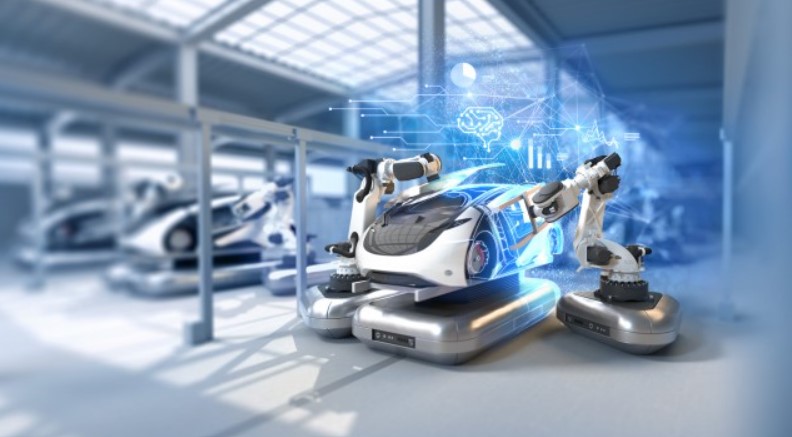The revolution is just beginning and in no other sector artificial intelligence is having more of an impact than manufacturing. The deployment of AI and robots is particularly useful in industry as they increase product quality, production efficiency, and overall speed.
For the manufacturing sector, artificial intelligence (AI) promises to be a game-changer at every level of the value chain. Though it may be a daunting task, it is now widely accepted that every industry will be impacted dramatically by AI within the next five to 10 years. The real driver, however, will be to develop applications for artificial intelligence that will not just automate tasks but will make entirely new business processes feasible.
Simply put, AI executes an action, learns from the results, and then tweaks its subsequent actions to achieve a better result. Thus, those organizations and industries that embrace this technological revolution early on are going to reap huge benefits that will see them emerge ahead of their competitors, while companies that don’t will risk losing their competitive edge.
A recent report by the World Economic Forum quoted Instrumental CEO and founder Anna-Katrina Shedletsky who reckons by 2025, ubiquitous streams of data and intelligent algorithms will enable manufacturing to continuously optimize towards higher levels of output and product quality – reducing overall waste in manufacturing by up to 50%. As a result, we will enjoy higher quality products, produced faster, at a lower cost to our pocketbooks and the environment, along with other benefits of AI in the manufacturing sector.
- Direct Automation
Industrial internet of things (IIoT) connects all IoT-enabled devices to the factory floor, integrating manufacturing processes with big data and making them programmable via a logic controller. Increased use of precision sensory equipment means that information can be generated, recorded, and analyzed for all aspects of the production process, covering anything from temperature to item picking and packaging.
Programmable logic controllers with AI capacity for deep learning can then respond automatically to the seamlessly generated information, and make alterations to the minutest function without recourse to human intervention. The big data analytics processed by AI can substantially improve performance across the entire production process and can be operated remotely.
- 24/7 production & safer environment
For any production facility to continue working round the clock, humans are required to work in shifts but with the help of AI and, the production line can function 24/7. This allows the expansion of production capabilities, which is increasingly necessary to meet the demands of worldwide customers. Furthermore, robots are more efficient in many areas such as the assembly line and picking and packing departments. They can greatly reduce turn-round times in many areas of the business operation.
Errors and accidents do occur on the factory floor and in any construction or processing environment, but this tendency is almost always a byproduct of human error, that can be all but eradicated in manufacturing by AI and robotic assistance. Remote access control means a reduction in human resources, especially when the work is dangerous or requires superhuman effort. Even regular working environments will cut down on the incidence of industrial accidents and lead to an overall improvement in safety. In addition, more advanced sensory equipment integrated with IIoT devices makes the installation of safety guards and barriers a simpler and more effective measure to protect human lives.
- Lower operational costs
Many companies are viewing the introduction of AI into the manufacturing industry with trepidation, as it requires a huge capital investment but what they fail to realize is the ROI is significant and increases with time. Once intelligent machines begin to take over the daily activities of a factory floor, businesses will benefit through considerably reduced operating costs, with predictive maintenance helping additionally to reduce machine downtime.
- Quality control and greater efficiency
IIoT enables the collection of vast amounts of data and advanced analytics which can be used to gain insights into consumer behavior. AI has the capacity with machine learning to anticipate information, refine processes, and track incongruities, all the way down the supply chain from source to finished product.
Sensors can even also detect the mot microscopic defects, scanning them at resolutions far beyond the capacity of human vision, thus improving productivity and increasing the percentage of items that will pass quality control.
- Predictive maintenance
AI is also extremely useful for carrying out predictive maintenance on machinery and equipment. Using sensors to track performance and operating conditions, machines can learn to predict malfunctions and failures, and take action to remedy them before they occur. This can result in faster feedback, helping companies to eradicate unplanned downtimes.
This article has been extracted and freely adapted from a TECHWIRE blog post – March 2021

